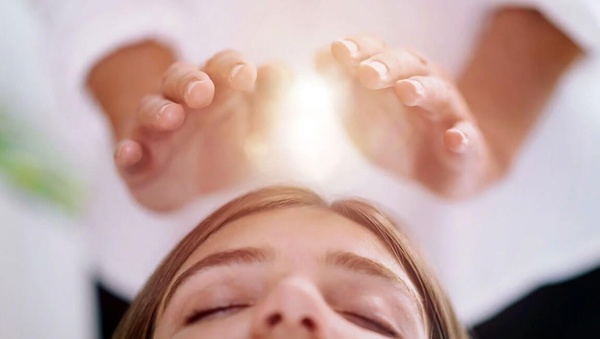In a world where stress, anxiety, and physical ailments seem to be a common part of life, many are turning to alternative healing practices to find balance and restore their well-being. One such practice is Usui Reiki, a form of energy healing that originated in Japan in the early 20th century. Founded by Mikao Usui, this gentle yet powerful method has been embraced worldwide for its ability to promote physical, emotional, and spiritual healing. But what exactly are the health benefits of Usui Reiki, and how does it work?
Understanding Usui Reiki
Reiki, which translates to “universal life energy,” is based on the concept that an unseen life force flows through us and is what causes us to be alive. When this life force is low, we are more likely to experience stress or illness. Conversely, when it is high, we are more capable of being happy and healthy.
Usui Reiki practitioners use their hands to channel life-force energy into a person’s body to clear energy blockages and restore balance. This process is typically noninvasive and involves the practitioner lightly touching the recipient or holding their hands just above the body. The energy flows wherever it is needed most, facilitating the body’s natural healing processes.
Health Benefits of Usui Reiki
Stress Reduction and Relaxation
One of the most well-documented benefits of Usui Reiki is its ability to induce deep relaxation and reduce stress. In today’s fast-paced world, chronic stress has become a significant contributor to various health problems, including heart disease, anxiety, and depression. Reiki sessions help calm the mind, slow the heart rate, and promote relaxation, making it easier for the body to heal.
Improved Mental Clarity and Emotional Well-Being
Usui Reiki is beneficial for physical ailments as well as mental and emotional health. Many people report feeling a sense of mental clarity and emotional stability after a Reiki session. By clearing energy blockages, Reiki can help release negative emotions such as anger, fear, and sadness, allowing for a more positive outlook. It is beneficial for those dealing with anxiety, depression, or grief.
Pain Relief
Another significant benefit of Usui Reiki is its potential to alleviate pain. Whether it’s chronic pain from conditions like arthritis or acute pain from an injury, Reiki can help reduce discomfort. The gentle energy flow helps relax muscles, improve circulation, and accelerate the body’s natural healing processes. Some studies have shown that Reiki can be an effective complementary therapy for pain management, mainly when used alongside conventional treatments.
Enhanced Healing and Recovery
Usui Reiki can be a valuable tool for recovering from surgery, illness, or injury. By promoting relaxation and reducing stress, Reiki allows the body’s immune system to function more effectively. It also helps speed the healing process by enhancing energy flow to the affected areas. Many people report feeling greater vitality and well-being after Reiki sessions, which can be particularly beneficial during recovery periods.
Boosted Immune System
Chronic stress and anxiety can weaken the immune system, making the body more susceptible to illness. Usui Reiki supports the body’s natural defenses by reducing stress and promoting relaxation. This, in turn, helps strengthen the immune system, making it easier to fend off infections and maintain overall health.
Spiritual Growth and Self-Awareness
While the physical and emotional benefits of Usui Reiki are well-documented, it also offers profound spiritual benefits. Reiki encourages a deeper connection with oneself and the universe, fostering spiritual growth and self-awareness. Many people find that regular Reiki sessions help them gain insights into their life purpose, develop greater compassion, and experience inner peace.
Specific Ailments Usui Reiki is Renowned for Healing
Usui Reiki has gained recognition for its ability to assist in the healing of a wide range of physical, emotional, and mental conditions. While it’s important to note that Reiki should be used as a complementary therapy rather than a substitute for conventional medical treatments, many individuals have reported significant improvements in their health and well-being after receiving Reiki sessions. Here’s an impressive list of specific ailments that Usui Reiki is renowned for addressing:
Chronic Pain
- Arthritis: Reiki can help reduce inflammation and alleviate the persistent pain associated with arthritis, improving joint mobility and comfort.
- Fibromyalgia: People with fibromyalgia often experience relief from widespread pain, fatigue, and tenderness, as Reiki helps ease muscle tension and promote relaxation.
- Back Pain: Whether due to injury, posture issues, or chronic conditions, Reiki can alleviate back pain by reducing muscle spasms and improving circulation.
Mental Health Conditions
- Anxiety: Reiki is well-known for its calming effects, which can help individuals manage stress, panic attacks, and general feelings of unease.
- Depression: By helping to release emotional blockages, Reiki can support the healing process in individuals experiencing depression, fostering a more positive mindset and emotional balance.
- Post-Traumatic Stress Disorder (PTSD): Reiki can assist in reducing the symptoms of PTSD, such as flashbacks, hypervigilance, and emotional numbness, by promoting deep relaxation and emotional release.
Sleep Disorders
- Insomnia: Reiki’s ability to promote deep relaxation can be particularly beneficial for insomniacs, helping to calm the mind and prepare the body for restful sleep.
- Sleep Apnea: While not a cure for sleep apnea, Reiki can help reduce the stress and anxiety often associated with this condition, potentially improving sleep quality.
Digestive Issues
- Irritable Bowel Syndrome (IBS): Reiki can help alleviate the symptoms of IBS, including abdominal pain, bloating, and irregular bowel movements, by reducing stress and promoting relaxation.
- Acid Reflux: Individuals suffering from acid reflux may find relief as Reiki helps reduce stress, which is often a trigger for this condition.
- Crohn’s Disease: Reiki may help manage the inflammation, pain, and stress associated with Crohn’s disease, supporting overall digestive health.
Cardiovascular Conditions
- Hypertension (High Blood Pressure): Reiki has been shown to help lower blood pressure by promoting relaxation and reducing stress, which are key contributors to hypertension.
- Heart Disease: While not a cure, Reiki can support those with heart disease by reducing anxiety and promoting emotional healing, which can improve overall heart health.
- Arrhythmia: Reiki may assist in stabilizing irregular heartbeats by promoting a calm and balanced state of mind.
Respiratory Conditions
- Asthma: Reiki can help alleviate asthma symptoms by reducing stress and calming the nervous system, which may decrease the frequency and severity of asthma attacks.
- Chronic Obstructive Pulmonary Disease (COPD): Reiki may support individuals with COPD by enhancing relaxation, which can improve breathing and reduce anxiety related to the condition.
- Bronchitis: Reiki may help reduce the inflammation and discomfort associated with bronchitis, aiding in a quicker recovery.
Skin Conditions
- Eczema: Reiki’s stress-relieving properties can help reduce flare-ups of eczema, which are often triggered by stress and anxiety.
- Psoriasis: While not a cure, Reiki can help alleviate the discomfort and stress associated with psoriasis, potentially leading to fewer outbreaks.
- Acne: Reiki may help balance the hormones and reduce stress, which often contribute to acne.
Reproductive Health
- Menstrual Disorders: Reiki can help regulate menstrual cycles and alleviate symptoms such as cramps, bloating, and mood swings by promoting hormonal balance and relaxation.
- Infertility: While not a guaranteed solution, Reiki can support fertility by reducing stress, balancing energy, and promoting a sense of emotional well-being.
- Prostate Problems: Reiki may assist in alleviating symptoms associated with prostate issues, such as benign prostatic hyperplasia (BPH) and prostatitis, by reducing inflammation, easing urinary symptoms, and promoting relaxation.
- Menopause: Reiki can help manage symptoms of menopause, such as hot flashes, mood swings, and sleep disturbances, by promoting hormonal balance and emotional stability.
Neurological Conditions
- Migraines and Headaches: Reiki is renowned for relieving the intensity and frequency of migraines and tension headaches by reducing stress and easing muscle tension.
- Multiple Sclerosis (MS): While not a cure for MS, Reiki can help alleviate symptoms such as muscle spasms, pain, and fatigue, promoting a greater sense of comfort and well-being.
- Parkinson’s Disease: Reiki may assist in managing the symptoms of Parkinson’s, such as tremors and rigidity, by promoting relaxation and reducing anxiety.
Cancer Support
- Pain and Nausea Management: Reiki is often used as a complementary therapy for cancer patients to help manage pain, reduce nausea, and alleviate the side effects of chemotherapy and radiation treatments.
- Emotional Support: Reiki provides emotional and spiritual support to those undergoing cancer treatment, helping to reduce anxiety, depression, and fear associated with the disease.
- Fatigue: Reiki may help combat the extreme fatigue often experienced by cancer patients, improving energy levels and overall well-being.
Endocrine Disorders
- Thyroid Imbalance: Reiki can help balance energy in the thyroid gland, potentially aiding in managing conditions like hypothyroidism and hyperthyroidism.
- Diabetes: While not a cure, Reiki can help reduce stress and promote relaxation, which are essential for managing blood sugar levels in individuals with diabetes.
- Adrenal Fatigue: Reiki may help restore balance to the adrenal glands, helping to manage symptoms like chronic fatigue and low energy levels.
Autoimmune Disorders
- Lupus: Reiki can help manage lupus symptoms, such as pain, fatigue, and emotional distress, by promoting relaxation and reducing inflammation.
- Rheumatoid Arthritis: Reiki can help alleviate the pain and inflammation associated with rheumatoid arthritis, improving joint function and quality of life.
- Hashimoto’s Thyroiditis: Reiki may support individuals with Hashimoto’s by promoting thyroid balance and reducing the autoimmune response.
Urinary Disorders
- Urinary Tract Infections (UTIs): Reiki may help relieve discomfort and promote faster recovery from UTIs by enhancing the body’s natural healing processes.
- Kidney Stones: Reiki may help manage the pain and discomfort associated with kidney stones and promote relaxation during healing.
- Bladder Control Issues: Reiki may support those with bladder control issues by reducing stress and promoting the relaxation of the urinary tract muscles.
Usui Reiki is a versatile and holistic healing practice with numerous health benefits. From stress reduction and pain relief to enhanced healing and spiritual growth, Reiki can be a powerful tool for improving overall well-being. While it does not replace conventional medical treatment, it can be a valuable complementary therapy, helping individuals achieve balance and harmony. As more people seek natural and non-invasive ways to improve their health, the ancient art of Usui Reiki offers a path to healing and transformation.

